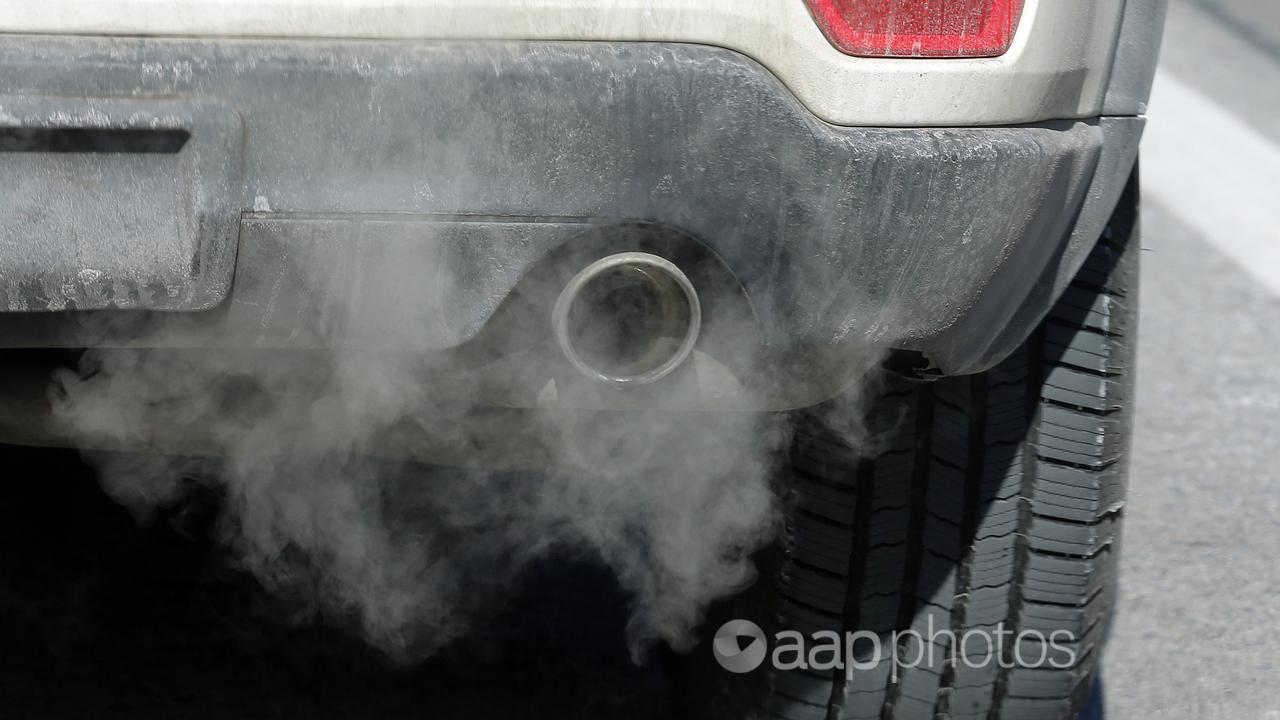AAP FACTCHECK – Humans are responsible for just three per cent of the carbon dioxide (CO2) in the earth’s atmosphere, according to posts on social media.
This is false. Humans are responsible for about a third of the CO2 in the earth’s atmosphere, more than 10 times what is being suggested.
The claim appears in numerous Facebook posts, many of which include a clip of broadcaster and former Wallabies coach Alan Jones on the ABC’s Q&A program from 2019.
In the video, Mr Jones says the percentage of carbon dioxide in the atmosphere is 0.04, adding: “Human beings are responsible for three per cent of that 0.04 per cent.”
Climate scientists told AAP FactCheck the claim is incorrect.

James Renwick, Victoria University of Wellington professor of physical geography and lead author of multiple Intergovernmental Panel on Climate Change (IPCC) reports, said it is correct that CO2 is 0.04 per cent of the earth’s atmosphere.
“This small fraction, along with the other greenhouse gases, accounts for the earth being habitable and not a frozen ball,” Prof Renwick said.
However, he said humans are responsible for a third of this, not three per cent as was being claimed by Mr Jones.
Prior to industrialisation, atmospheric CO2 levels were about 280 parts per million (ppm), accounting for about 0.028 per cent of the atmosphere, Prof Renwick said.
In fact, it had been at 280ppm for thousands of years leading up to the Industrial Revolution.
Human activities have since increased this to 420ppm.
“This is a 50 per cent increase in the atmospheric loading of CO2 and that is all down to human activity,” Prof Renwick said.
“On that basis, we are responsible for 33 per cent (140 of the 420ppm) of the CO2 currently in the air, as stated by New Zealand’s National Institute of Water and Atmospheric Research and many other bodies.
“In terms of thinking about how the climate is changing, that is the end of the story.”
University of Canterbury physics professor Dave Frame has also been a lead author on multiple IPCC reports and agreed with Prof Renwick's analysis.
While the origin of the false three per cent claim is unclear, it has been linked to a similar assertion relating to the percentage of annual global emissions from human activity.
Despite being a different claim, it is often conflated, as was the case when AAP FactCheck debunked a statement made by Australian federal politician Colin Boyce.
He repeated a similar claim to Mr Jones and then pointed to a 2011 statement made by Australian geologist and climate science sceptic Ian Plimer as his source.
"The IPCC says that three per cent of annual emissions are from humans," Prof Plimer claimed.
While his claim is broadly true - at the time he made it - it's missing important context.
The IPCC's Fourth Assessment Report on climate change, published in 2007, shows emissions from fossil fuels were responsible for 6.4 gigatonnes of carbon (GtC) entering the atmosphere each year, while land-use change such as deforestation was responsible for a further 1.6GtC.
Carbon emissions from natural sources, on the other hand, were responsible for 190.2GtC each year. This means human activity was responsible for about three per cent of annual emissions, while including land-use changes increases this to four per cent.
The latest IPCC report, published in 2021, updates these figures and shows humans are now responsible for about five per cent of annual carbon emissions.

Prof Renwick said this is a way of looking at emissions "that those who want to deny human-caused climate change like to wheel out". It doesn't mean the carbon emissions caused by humans are too small to warm the climate, he said.
This is because the natural sources of carbon emissions are generally in equilibrium and are absorbed by carbon sinks each year, primarily by forests and oceans. The additional human-induced carbon emissions, however, go beyond what these sinks can absorb and therefore the gas begins to accumulate in the atmosphere.
This slow accumulation has caused the amount of CO2 in the atmosphere to increase by 50 per cent since industrialisation.
"Compared to those natural fluxes, human emissions are only a few per cent, but crucially they are not balanced, they always contribute to an increase in atmospheric CO2," Prof Renwick said.
"So the three per cent figure is correct, when comparing natural CO2 fluxes to human ones, but it is very misleading as the natural fluxes go up into the air then down again. The human fluxes go up and stay there."
The Verdict
False – The claim is inaccurate.
AAP FactCheck is an accredited member of the International Fact-Checking Network. To keep up with our latest fact checks, follow us on Facebook, Twitter and Instagram.
All information, text and images included on the AAP Websites is for personal use only and may not be re-written, copied, re-sold or re-distributed, framed, linked, shared onto social media or otherwise used whether for compensation of any kind or not, unless you have the prior written permission of AAP. For more information, please refer to our standard terms and conditions.


















